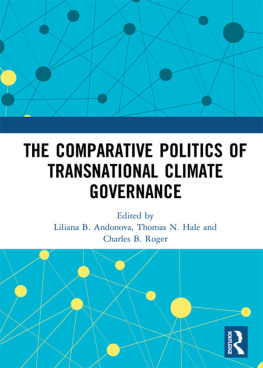REBORDERING THE MEDITERRANEAN
General Editor: Jacqueline Waldren, Institute of Social Anthropology, University of Oxford
Volume 1 | Coping with Tourists: European Reactions to Mass Tourism
Edited by Jeremy Boissevain |
Volume 2 | A Sentimental Economy: Commodity and Community in Rural Ireland
Carles Salazar |
Volume 3 | Insiders and Outsiders: Paradise and Reality in Mallorca
Jacqueline Waldren |
Volume 4 | The Hegemonic Male: Masculinity in a Portuguese Town
Miguel Vale de Almeida |
Volume 5 | Communities of Faith: Sectarianism, Identity, and Social Change on a Danish Island
Andrew S. Buckser |
Volume 6 | After Socialism: Land Reform and Rural Social Change in Eastern Europe
Edited by Ray Abrahams |
Volume 7 | Immigrants and Bureaucrats: Ethiopians in an Israeli Absorption Center
Esther Hertzog |
Volume 8 | A Venetian Island: Environment, History and Change in Burano
Lidia Sciama |
Volume 9 | Recalling the Belgian Congo: Conversations and Introspection
Marie-Bndicte Dembour |
Volume 10 | Mastering Soldiers: Conflict, Emotions, and the Enemy in an Israeli Military Unit
Eyal Ben-Ari |
Volume 11 | The Great Immigration: Russian Jews in Israel
Dina Siegel |
Volume 12 | Morals of Legitimacy: Between Agency and System
Edited by Italo Pardo |
Volume 13 | Academic Anthropology and the Museum: Back to the Future
Edited by Mary Bouquet |
Volume 14 | Simulated Dreams: Israeli Youth and Virtual Zionism
Haim Hazan |
Volume 15 | Defiance and Compliance: Negotiating Gender in Low-Income Cairo
Heba Aziz Morsi El-Kholy |
Volume 16 | Troubles with Turtles: Cultural Understandings of the Environment on a Greek Island
Dimitrios Theodossopoulos |
Volume 17 | Rebordering the Mediterranean: Boundaries and Citizenship in Southern Europe
Liliana Surez-Navaz |
Volume 18 | The Bounded Field: Localism and Local Identity in an Italian Alpine Valley
Jaro Stacul |
Volume 19 | Foundations of National Identity: From Catalonia to Europe
Josep Llobera |
Volume 20 | Bodies of Evidence: Burial, Memory and the Recovery of Missing Persons in Cyprus
Paul Sant Cassia |
Volume 21 | Who Owns the Past? The Politics of Time in a Model Bulgarian Village
Deema Kaneff |
Volume 22 | An Earth-Colored Sea: Race, Culture, and the Politics of Identity in the Postcolonial Portuguese-Speaking World
Miguel Vale de Almeida |
REBORDERING THE
MEDITERRANEAN
Boundaries and Citizenship
in Southern Europe
Liliana Surez-Navaz
Published in 2004 by
Berghahn Books
www.berghahnbooks.com
2004 Liliana Surez-Navaz
First paperback edition printed in 2006
Paperback reprinted in 2008
All rights reserved.
Except for the quotation of short passages for the purposes of criticism and review, no part of this book may be reproduced in any form or by any means, electronic or mechanical, including photocopying, recording, or any information storage and retrieval system now known or to be invented, without written permission of the publisher.
Library of Congress Cataloging-in-Publication Data
Surez-Navaz, Liliana.
Rebordering : boundaries and citizenship in southern Europe / Liliana Surez-Navaz.
p. cm. (New directions in anthropology ; v. 17)
Includes bibliographical references and index.
ISBN 1-57181-472-8 (alk. paper)
1. Granada (Spain : Province)Social conditions. 2. Group identitySpainGranada (Province). 3. AfricansSpainGranada (Province)Social conditions. 4. ImmigrantsSpainGranada (Province)Social conditions. 5. CitizenshipSpain. 6. Immigr I. Title. II. Series.
HN590.G7S83 2003
306'.09dc21
2002043660
British Library Cataloguing in Publication Data
A catalogue record for this book is available from the British Library.
Printed in the United States on acid-free paper
To the memory of those who died crossing national borders.
For Granada and its peoples.
For Andrea Yara and Iker with love.
ACKNOWLEDGMENTS
My personal circumstances forced me to move and adapt to different places and peoples, and I am happy to say that everything I learned is marked by my migratory and intercultural experiences. I encourage anybody in similar circumstances to move forward, no matter the efforts she has to make, to be able to make the most of our world. It certainly is a challenge, however, to acknowledge all of the people scattered in three continents who helped in so many ways to carry this project through.
The financial support of several institutions was essential for completion of this project. A joint Fulbright/Spanish Ministry of Education scholarship supported me during my Ph.D. training. My fieldwork and the writing of my dissertation were financed by generous grants from the National Science Foundation (SBR-94/11667), the Institute for International Studies at Stanford, the Mellon Foundation, and Stanfords Department of Anthropology. I also thank the American Anthropological Association, the Law and Society Association, and the Minda de Gunzburg Center for European Studies at Harvard University for support to attend conferences where I received important feedback for this work.
My primary thanks go to George A. and Jane F. Collier, both of whom have helped and guided me since I began graduate studies at Stanford. I am deeply indebted to them for their consistent commitment to furthering my work, for their personal and professional support, and for their endless generosity. Jane F. Collier introduced me to anthropology of law and she has been the single most important influence in my interest in the culture of modernity. As my advisor, George A. Collier taught me much about methods and ethnohistorical analysis; but above all, I thank the legacy of American anthropology he transmitted to me. As a classical master, he taught me how to be a good anthropologist in the field as well as in the academic environmentand most especially, how to be a good advisor in the future with my own students.














